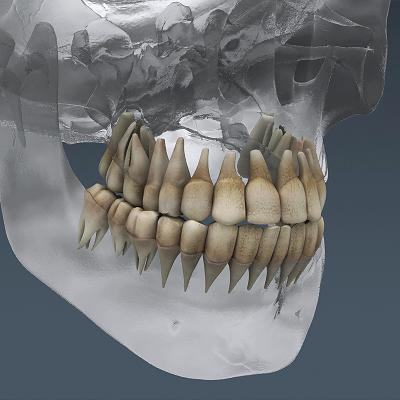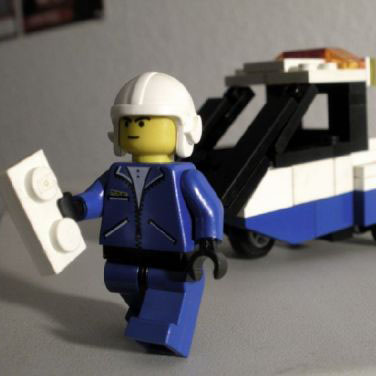
LetsFixYourFace
Boston, MA
Male, 35
I practice oral and maxillofacial surgery in a major metropolitan area in the US. Despite the fact that I was a dentist before I was a doctor (now I am both), taking out teeth is but a mere bank rolling of my true interest... Cutting into peoples faces :)
- Wisdom teeth
- Facial fractures
- Head and neck tumors
- Facial cosmetic procedures
- Fixing your jacked up bite
This is one of my favorite things to do... although the pay is kind of crappy. Lets be real, the people getting their jaws busted didn't get it busted for no reason. The common presentation is the following... "I was minding my own business... and 9 guys jumped me for no reason" haha. Anyway, these people seldom have insurance or resources to pay for the surgery so it is often covered by the state at a much reduced reimbursment rate. Hence it is usually considered a service to the community. Nevertheless... It is one of the funnest surgeries to do!
To answer your question... everyone who shows up to the ER with a broken mandible gets a procedure. There are very few indications for going to the operating room right then and there to put in plates and screws. It is nice to wait for the swelling to go down but some surgeons like to go in right away and fix it before the swelling even starts. This is not the practice of most people though. Nevertheless, it is bad form to let people walk around with floppy mandibles until their swelling goes down (infection risk) so they get wired shut. This is our equivelent of putting someone in a cast. The purpose is to put the bones back together and imobilize the jaw. This is often the only procedure that is needed. Sometimes though... for various reasons, the aforementioned surgery is needed (plates and screws) and yes this is usually done after swelling goes down. Although realistically it takes that amount of time to get on the OR schedule regardless.
Now if we are talking about other bones of the face... cheek bones, eye sockets, forehead, etc. It is best to wait until the swelling goes down. This helps us get the contours of the face as symmetric as possible.
In any situation however... you want to operate within 2 weeks. At that point the bones start to fuse.
Titanium screws are used. The business of making hardware that goes into peoples bones is actually quite impressive. There are several companies and the science that goes into it is really neat. Synthes is one that comes to mind.
It is important to note that while bone and wood have some similarities, they don't always act in the same manner. Bone is quite calcified but does still have some pliable properties. Splitting a bone with a poorly angled screw is not really common. Generally the screw just stays in place and bone grows around it. Any minor splits that do occur remodel and aren't usually an issue. If there is some concern intraopertive radiographs can be obtained to make sure that the screws are in the right place.
Also, the face is a unique part of the body in that there are some bones that are less then 1.0 mm thick (maxillary sinus, orbital floor). Imagine doing cabinet work on a piece of wood that is as thick as your fingernail!! The design of these screws to hold in place in those kind of conditions is phenomenal.
They are accurate to an extent. They have limited applications in situations where very large movements are planned (>8-10 mm) or when someone has an excess amount of soft tissue. Also, they are pretty much only accurate in predicting what you will look like in a profile view (looking from the side). The projections from the frontal perspective are not really that good. Those programs should be a supplement to help you guide your decision for surgery. They should not be the BASIS for deciding on surgery. Whatever the soft tissue projection looks like, remember this fundamental of orthognathic surgery.... It is a functional surgery (bring your bite together), with cosmetic side effects. In my time, I have only seen 1 or 2 people come back unsatisfied with their appearance. I think they understood the principle stated above as backwards. Most people who get this surgery, are so happy to have their bite in a normal position. They are so happy they can finally chew normally that any minor cosmetic change they experience is icing on the cake.
Also please remember... your son will look nothing like those photos for the first 3-6 months. He will be very swollen :)
I have never seen anyone turned down for surgery because they were TOO deformed. What you have to realize is that someone who is "too deformed" will likely never be 100% normal. A lot of times, surgery is adressing a funcional issue in those cases. For instance. Someone with micrognathia... will often be tracheostomy dependant (they have a breathing tube that goes to their trachea) because their mandible is too small. Usually this is in children. They usually have other deformities and are often syndromic. We can adress their small jaw by lengthening it and usually even get the trach out. But they still have other "deformities"
iPhone & iPad Technician
 Is Apple is still the young and hip brand or have mom and dad spoiled it?
Is Apple is still the young and hip brand or have mom and dad spoiled it?
Meter Maid
 Is it tough to have a job that consists exclusively of ruining peoples' days?
Is it tough to have a job that consists exclusively of ruining peoples' days?
Claims Adjuster
By doctor I am assuming you are referring to MD... I am both. Our training starts with dental school and we get that degree first (either DMD or DDS). After dental school we go to residency where we train in oral and maxillofacial surgery. While in residency some of us go to a portion of medical school (usually 3rd and 4th year) and obtain an MD. Not all training programs have that feature though. So while I have a DDS and MD, my training program was 6 years after dental school. There are others who have DDS/DMD without MD but are still fully trained oral and maxillofacial surgeons. Their training program was 4 years long. I don't know the exact numbers but about half of the oral surgeons are dual degree surgeons (ie DDS/DMD and MD) and the other half are single degree.
It really depends on your jaw growth pattern and your current state.
Overbite: If you are done growing, it doesn't matter how old you are, your mandible will never catch up to your maxilla. If you have yet to have your growth spurt, than the mandible may catch up but often the maxilla will still grow as well and you will still need surgery. We often operate on these kids even if they haven't had their growth spurt because the mandible has demonstrated clear growth restriction.
Underbite: Here your mandible sticks out farther than your maxilla. This usually means you had a late or prolonged growth spurt and that growth is just about finished. Operating is okay at anytime here.
There are some surgeons that I would never send a friend to but honestly it has more to do with their willingness and ability to take care of any complications. It is very troublesome to see a surgeon do a procedure on someone and then not be there for when they have a complication. It is not uncommon to see other surgeon's patients over the weekend or nighttime hours because they were unavailable. Those are the types of surgeons I would never send a friend to.
As far as abilities, some surgeons do certain procedures more often than others. Surgeon A may be really good at taking out teeth and putting in implants but doesn't do trauma that often. Surgeon B may do a lot of trauma but not do teeth. So I would refer based on what I know about their scope of practice.
-OR-
 Login with Facebook
Login with Facebook (max 20 characters - letters, numbers, and underscores only. Note that your username is private, and you have the option to choose an alias when asking questions or hosting a Q&A.)
(A valid e-mail address is required. Your e-mail will not be shared with anyone.)
(min 5 characters)
By checking this box, you acknowledge that you have read and agree to Jobstr.com’s Terms and Privacy Policy.
-OR-
 Register with Facebook
Register with Facebook(Don't worry: you'll be able to choose an alias when asking questions or hosting a Q&A.)